Is the Game Industry spending itself to death?
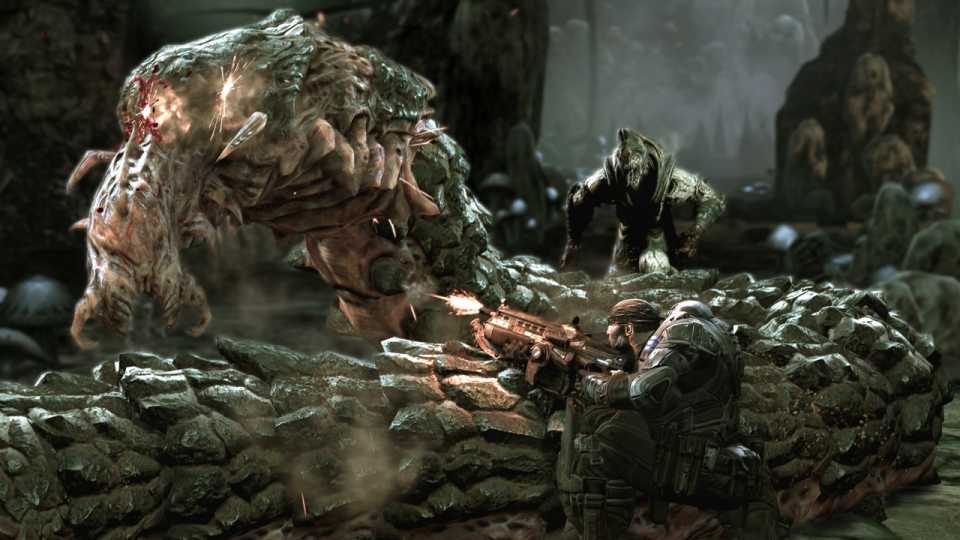
The key moment in that discussion on the podcast, and the moment that's really had me thinking was a thoughtful comment from Ryan Davis: Why can't this industry function with a used market in the same way other industry's can? Why is the used game market so out of control that it's actually hurting publishers and developers?
My Co-Hosts, Special Guest and I talked about this for a bit on the BSHAF recording on Saturday, but I keep coming back to that comment, trying to work through why the used market has been so damaging to console game sales, why piracy has seemed to lay waste to PC game developers and sales. And make no mistake; the used game market and PC piracy are most definitely linked together; they both represent the consumer's (perfectly reasonable) desire to buy items for as cheap as possible (or free, as the PC case might entail). It doesn't have anything to do with supporting game developers or trying to put down a shady corporation like Gamestop. So why are developers and publishers panicked? It almost seems like this industry seems to be....tearing itself in half.
That's the thought I came to not too long ago. And I don't mean in the sense that all this economic dilemma threatens to destroy video games forever. Rather, it seems like this industry is still functioning like we were still in the 90's: when companies could outspend each other on more and more lavish games, when consumers were so focused on this resolution/texture/lighting/graphical effects war between games, when piracy wasn't nearly as easy as it was today, and the used game market didn't seem to pose much of a threat to the Software Developers/Publishers.
It all comes down to money, it seems. Players want games on the cheap. Publishers want to recoup their dev costs and make a profit. Developers want to hold a job, and certainly wouldn't mind a little kickback from a successful game sale. These interests seem to be in dialectic conflict with the "Bigger, Better, More Bad Ass" expectations that players crave, forcing publishers and developers to spend and work like crazy to meet. Meanwhile, development costs for the 360, PS3 and PC have skyrocketed, and here we are: game's are still so expensive that people will happily buy used products, and developers lose control of their product(as well as cash) to Gamestop and other used retailers.
The very gaming world seems to be trapped between the past expectations of gaming as entertainment, and the future realities of development. The Game business seems to be filled to brim with opposites, design criteria from a bygone age that doesn't in any way mesh with the current consumer market:
Take developer Crytek, which turned out an absolutely beautiful product in Crysis, a game that is still, probably the finest looking game ever released. That's the kind of statement that would have guaranteed game sales in the 90's.....However, what's the active percentage of people who could effectively play Crysis the way is was meant to be played? Brutal system specs guarantee that a $3000 computer investment was necessary to play this $50 game. How on earth could anyone justify that kind of purchase? Crytek shot themselves in the foot by trying to be the "Best Looking Game Ever", and ultimately reduced the number of people who could play their game in the process, on top of what must have been a ridiculously costly development cycle. They made a game that most people couldn’t run. How did they expect for Crysis to be a success?
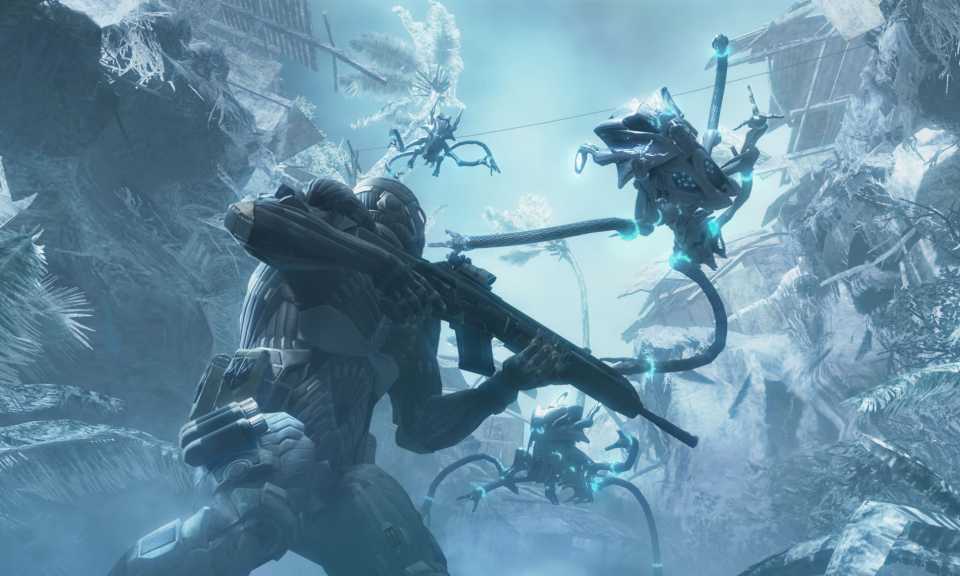
Companies still feel like they need to produce visually stunning blockbusters at all times, forcing them either to create their own expensive engine tech, or go out and license, at the very least, a ton of different middleware products or, at most, someone else’s engine. Those licensing fees must sink into the development budget on a game, forcing the developers to depend on ridiculous new software sales. If the team decides to code their own stuff, they’re going to have to bring in a ton of new employees and workers to try and have the game live up to the unreasonable visual triumphs of this generation, which also eats into development costs and force them to depend on new software sales. Their “bleeding edge” design only forces them to rely more on a consumer base that has no problem paying less money for games, even if that cash doesn’t go to the people who made the game.
At the launch of the PS3 back in 2006, publisher Namco Bandai claimed that games would have to sell more than half a million copies to turn a profit. How many games ever come close to 500,000 sales? Plenty of the games that you and I love would be THRILLED to reach that many sales. How did we let development become so crazy that publishers can’t support the medium we love?
It’s totally crazy that most developers are still trying to outspend the competition, especially when this generation of consoles has provided ample opportunity to make games cheaper, to sell them for cheaper, and to actually see a profit from sales. While most of the “hardcore” on high mountaintops are plenty happy to discourage the Nintendo Wii, it’s absolutely modest(backwards, in fact) hardware power means that games for the system are guaranteed to be made cheaper, and will probably have a better opportunity to make money. GameCube specs be damned, Nintendo proved that consumers would happily and gladly accept cheaper hardware and cheaper games. In fact, one could make a reasonable argument that the Wii’s lower price point was as crucial to its success as the Wii remote. I doubt that a single Wii game cost as much money as the majority of 360 and PS3 games. Developers didn’t need to go too crazy learning the ins and outs of the Wii, meaning games can be produced faster, sooner, for cheap, and for more people on the Wii. Why haven’t more companies jumped ship? Wii owners could use an influx of support from genuine 3 Party games to stop the rise of casual (crap not to say that casual games are crap, but to stop the influx of the crappy casual games). The Wii, every step of the way, has seemed to offer a ton of potential and reduced expenditures for all parties involved with the system.
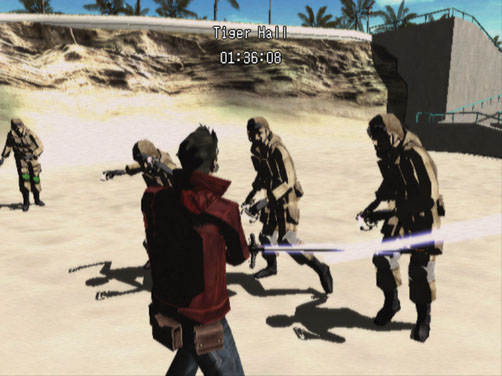
Indeed, compared to the other two consoles, the Wii seems to offer less headaches for consumers overall. Anyone reading this blog is tech savvy enough to appreciate how much better 360 and PS3 games can look with the right setup. But step back for a moment, and think about what it takes to look its best: a $700 dollar or more High Definition Television. Why on earth does it cost that much to get these “Next Gen” games to look as intended? And how many people, really, are able to take advantage of that setup? Stories like the “too small” text in Banjo-Kazooie: Nuts and Bolts seems crazy for someone that’s been playing 360 games on a proper HD screen…..but I felt that away about those same complaints made about Dead Rising and Lost Planet, and even worse cases like last year’s release of Pro Evolution Soccer, where the game actually had a worse framerate when played on a lower resolution T.V. These complains indicate, to me at least, that there is still a substantial portion of game players who are enjoying their HD outputting consoles and SD sets, and haven’t found enough of a reason to upgrade. Why does this industry seem to want and outspend its users? Why should players need to buy expensive T.V’s to enjoy their games? The Wii doesn’t need an HD signal to look it’s best, and the result is that more people can enjoy the game. Meanwhile, 360 and PS3 owners with SD sets are looking at blurry games that are sometimes bonedfor those who had the gall to not pony up an extra 600 bucks for a shinier window.
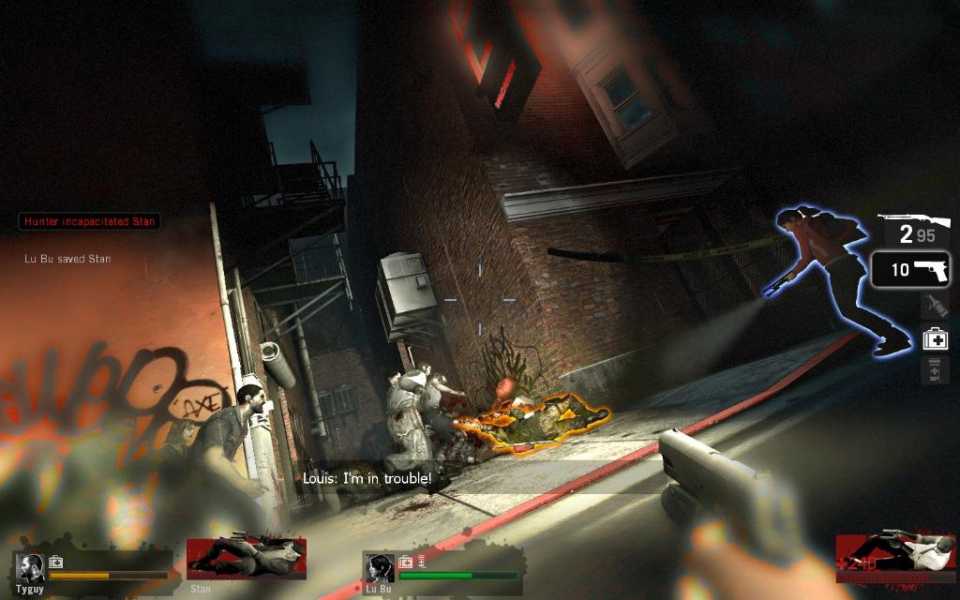
Hell, you don’t need to outspend the competition to make games period. Ironclad Games and Stardock made Sins of A Solar Empire for less than a million dollars. Would that kind of cash buy you an Unreal Development license? Meanwhile, the game has sold over 500,000 copies worldwide. The Witcher, an overlooked RPG delight from long time Polish Publisher/First Time Developer CD Projekt, is running on a modified version of the Aurora engine, the same tech that powered Neverwinter Nights 1 back in 2002. That 5 year old engine was still able to produce a stunning game that’s sold over 1 million copies to date. CD Projekt and Ironclad can handle the reality of game piracy, because they both went into development with lower development costs (The Witcher cost 11 million dollars to produce, meaning their 1 million sales covered their costs a few times over). Lower development costs and solid game design means a dev house is naturally going to make more money and it means they don’t need to rely on mass market sales to keep their business running.
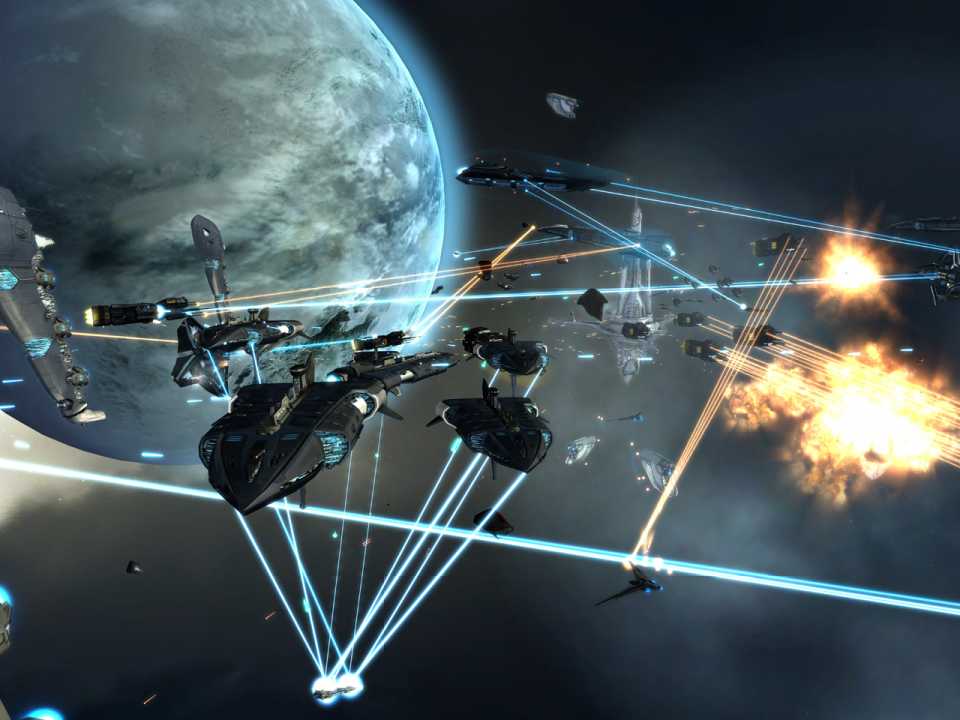
And what about the slow, powerful rise of 2D development as a viable game format? As players have begun to look at 2D games not as a technical hurdle but a stylistic choice, 2D games have found a place on XBL and the PSN. Braid is the combined effort of one man under 200, 000 dollars of development cost. Sure, that game wasn’t a complete market success, but those who played that bundle of joy know, intrinsically, that the quality of the game is not equal to the size of its budget. Would the fine folks at The Behemoth find themselves successful 10 years ago as a 2D game going up against the 3D juggernauts? Their Brawl-RPG Castle Crashers, with its lavish 2D artwork and simple, fun gameplay proved beyond any shadow of a doubt that 2D is still a viable format for design, and that 2D games provide opportunities to programmers and artists to make games cheaply and easily (compared to pricy 3D engines).
My point is this; Game developers need to stop resisting the current state of the gaming culture. Yes, people are going to buy used games from crappy retailers like Gamestop. Yes, people are going to pirate games. Yes, people are jerks. The solution, it seems, isn’t to try and push gaming back to its previous “spend-a-thon” ways, hoping they can still spend a ton of money on games and recoup it in full. It just comes across as large corporations trying to beat back against the current, a futile excessive that refuses to see the current state of gaming for what it is: a large population of gamers who want to spend less on games. Instead, publishers need to take a step back and accept that the market isn’t going to change back to its 90’s era self right away and that means making games in a world where they can be bought used or stolen outright. That reality totally sucks, make no mistake, but companies need to start making games for this new era of development. They need to stop trying to outspend the competition, and start using more modest tech in more creative ways to keep players interested. They need to create more compelling, better designed artwork. The rapid growth of this industry in the last few years, and the major company’s devotion to turning a property into an annual franchise is going to drain those publishers entirely.
Adapt developers! Adapt to the new world and the new market! Accept that people are going to be jerks, and accept that they’re going to naturally want cheap games. Make cheaper games. Make games that don’t absolutely require a million sales to recoup their dev costs. Create a business model that understands that games will be misused by derelicts, and respond by making games that aren’t affected by those fools. Adapt to a model that can make money off of less game sales, or that can allow for cheaper games to be sold. License cheaper engines! Make Wii Games! Create smaller teams, and don’t stretch them to the breaking point. Because, as it stands, with ridiculous dev costs and unrealistic expectations for new game sales (amongst a game buying public that wants cheaper games), I think we all lose.
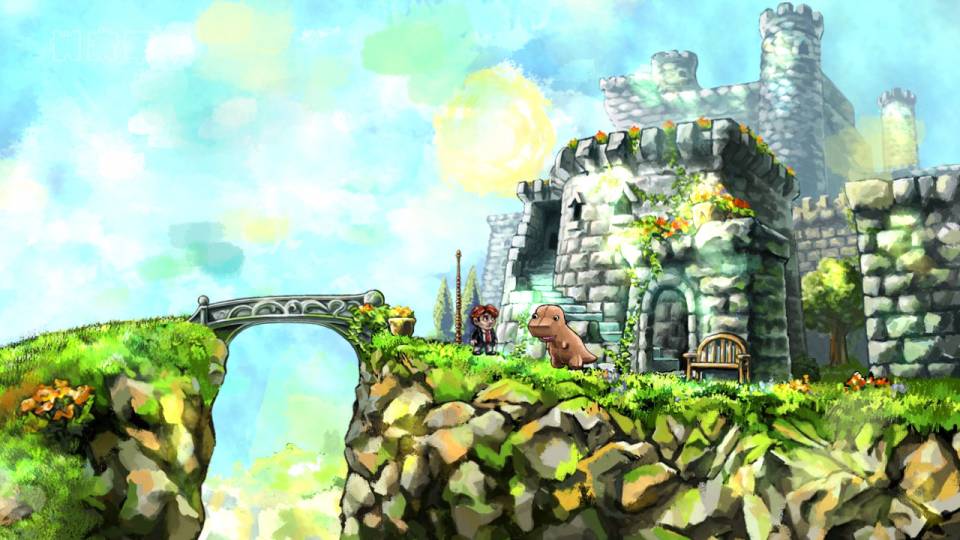
Except for Gamestop. Those Punks.
What do you guys think? What needs to happen to the game industry for developers and publishers to deal with the Used Game market and Piracy concerns?
Log in to comment